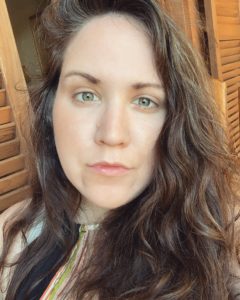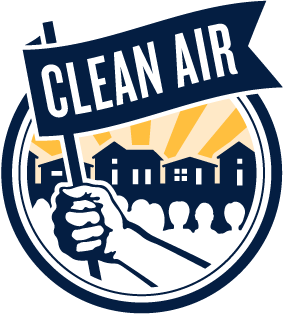When I joined the Clean Air staff, it truly felt like coming home.
 My name is Linnea and I work for Clean Air.
My name is Linnea and I work for Clean Air.
I come from a working class family from Niagara Falls. I am the youngest of six children — I have five older sisters (and thirteen nieces and nephews, with the fourteenth arriving any day now!). I grew up in my dad’s childhood home, with stories of the city he grew up in and how it had changed. He described a bustling local economy, full of jobs you could support a family on. As he tells the story: if your boss was a jerk, you could quit, go next door, and get a job with the same pay. By the time I heard those stories, the Niagara Falls he described was unrecognizable to me, and difficult to reconcile with the reality of the city I saw around me, where my family and neighbors struggled to make ends meet.
It was also years before I learned that the economy he described only ever worked like that for some people — that workers who weren’t white or weren’t men never had that kind of freedom.
I first found Clean Air in 2014. I had just finished grad school at UB, with a Master’s degree in Urban Planning. After months of cover letters with no responses, I was thrilled to find an energized, supportive, and loving workplace and a temporary position as a canvasser. I spent months knocking on doors in Buffalo and Tonawanda, and when my position ended, my mounting student debt and I were hired as a Sales Associate at Macy’s, but I was hooked on organizing.
I eventually found a 9-5 where I felt comfortable making rent, but kept in touch with the women I had met at Clean Air: they were brilliant, snarky, warm, strategic, and funny, and I often found the time to come to canvasses, meetings, and events. I also started organizing with Showing Up For Racial Justice (SURJ) on nights and weekends, learning direct action, refining my canvassing skills, and learning the nuts and bolts of community organizing. When I joined the Clean Air staff in 2018, it truly felt like coming home.
We call the kind of work I focus on at Clean Air “Just Transition”: how are we moving away from an economy that extracts labor from our bodies and resources from our environment, and fills them both with poison in return, and what are we creating in its place that is better?
I know we can have an economy that meets our needs, that is rooted in our dignity, rather than the profit we can make for a select few at the top. But we need to demand it, and design it ourselves.
When Tesla workers come together to demand justice and accountability for a racist, sexist, and abusive workplace, they are doing this work for all of us: because we all need and deserve jobs that pay us enough to afford to live and where white supremacy and misogyny do not define our experiences or our opportunities.
When community members in Seneca Babcock see a derelict industrial site, whose owner spent more than a decade illegally crushing cement behind their homes, filling their yards and houses with silica dust and diesel fumes, and they say: we can take that land for ourselves, restore the soil, and plant trees, they are doing this work for all of us: because the climate crisis is upon us, and land restoration and community control are sustainable solutions for a livable planet.
